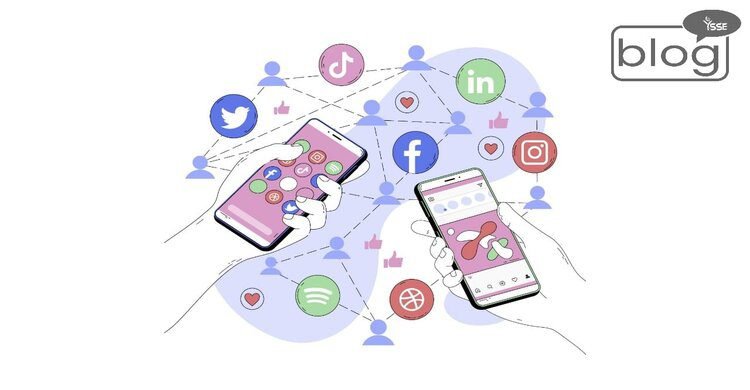Social media has quickly become a central feature of modern life. From connecting with family and friends to staying informed on global events, these platforms offer unprecedented convenience and connectivity – though these technologies do present their share of difficulties, leaving many individuals to consider it a ‘necessary evil.’
Connectivity as a Double-Edged Sword
The main purpose of social media is building connection and community. Platforms like Facebook, Instagram, Twitter and TikTok have fundamentally transformed our communication, breaking geographical barriers to share our lives globally with an ever-widening global audience. Instant connection offers instant gratification that has transformed how people build relationships and understand themselves in this globalized world.
Yet as we immerse ourselves in the digital sphere of likes, shares, and comments, the lines between genuine interaction and online personas blur. Pressure to present an idealized version of ourselves may cause anxiety and feelings of inadequacy – in stark contrast with their intended goal.
The Consequences of Overexposure: Mental Health and Privacy Concerns
One of the greatest risks posed by social media is its effect on mental health. Constant exposure to carefully crafted images and content may lead to feelings of inadequacy and depression as individuals compare their lives with that of others on social media. Fear of missing out (FOMO) becomes a real and pervasive fear, emphasizing our desire for connection but simultaneously amplifying its harmful side-effects.
Privacy has long been an issue in digital culture. Personal information shared on social media platforms may be harvested for targeted advertising campaigns and can erode our sense of autonomy. Finding a balance between sharing and protecting our privacy requires us to tread a fine line between connection and overexposure.
Fake News and Echo Chambers as Threats to Objective Reality
Misinformation spread rapidly via social media is another factor. When news is not verified properly and comes out fast, false stories go viral and change reality a lot. The problem is worsened by echo chambers – the tendency of people to only seek out information that confirms their pre-existing views and coping with a complex society that is riddled with changing stories becomes a huge and complicated task for everyone.
Identifying Common Ground to Harness Positive Potential
Although social media presents its own set of unique challenges, it remains essential to acknowledge its positive potential. Social platforms have a crucial impact on the society as they enable various forms of activism and social transformation efforts as well as giving voice to the underrepresented groups, offering a platform where different opinions and perspectives can interact in a direct and honest manner to cultivate a sense of global awareness and cooperation among the nations.
Individuals looking to successfully manage social media must adopt an approach which takes their online presence into consideration with set boundaries, curating a positive digital environment and critically analyzing information as essential steps in the journey towards a healthier online presence. In addition, supporting initiatives which foster digital literacy and responsible online behavior may contribute to an improved digital landscape.
The social media dilemma is an intricate interplay of connection and challenges; one which demands careful thought. By being aware of potential pitfalls and working to mitigate them, we can harness positive aspects of these platforms while creating a more harmonious digital experience; ultimately navigating the 21st-century landscape with greater agency and resilience.
To read more blogs click here.
Writer
Jannatul Afia Priya
Intern, Content Writing Department
YSSE

